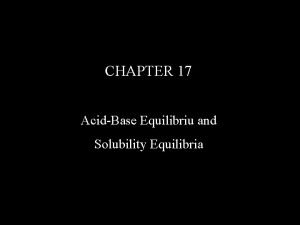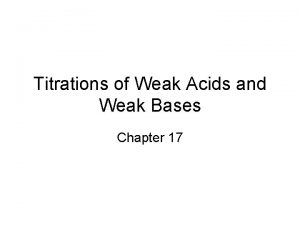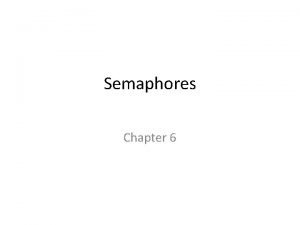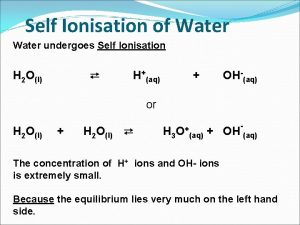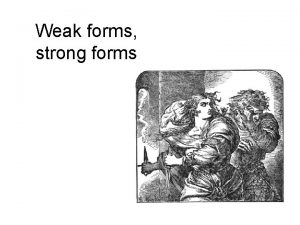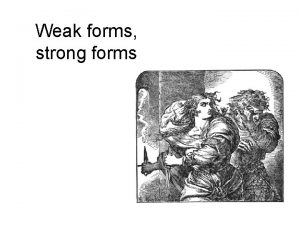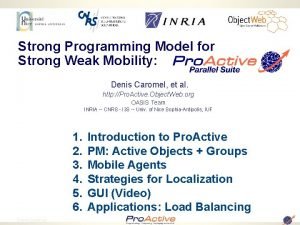strong patents weak patents and evergreening should patents








- Slides: 8

strong patents, weak patents and evergreening: should patents for drugs be challenged more often? Giancarlo Del Corno Studio Legale Sena e Tarchini 1

definition of “strong” vs. “weak” patent “evergreening” patents • • in terms of validity; in terms of extent of protection; “evergreening” patents; false problem under the profile of competition; Giancarlo Del Corno Studio Legale Sena e Tarchini 2

patent and competition • absence of parallelism between exclusive rights conferred by a patent and an automatic existence of monopoly; • patent does not confer a position , excluding or narrowing by itself the competition and giving therefore a substantial marginal utility; • relevant market is not exclusively represented by the patented product/process; • determination of the presence/absence of competition has to be referred to a broader market where other substitutes may be offered; Giancarlo Del Corno Studio Legale Sena e Tarchini 3

patent and competition • several studies have confirmed that in sectors in which the research and development is particularly relevant, there is a strong competition in terms of innovation and realization of novel products and technology; • competition is effective on this field; • important patent protection favours innovation, selecting the competition on the basis of novel products and technology; • no patent protection addresses the competition on other issues, such as for example price competition; • choice is between innovation vs. availability of goods at marginal costs; Giancarlo Del Corno Studio Legale Sena e Tarchini 4

extent of protection and compulsory licence • patent confers a right of exclusivity, impeding competitors from exploiting the results of their research and development activity; • current trend is addressed to reduce such right in favour of monetary reward such as for example licences; • conclusion valid for some technology (i. e. communication) and for the so-called “standard patents”; • compulsory licence favours competition in terms of innovation; Giancarlo Del Corno Studio Legale Sena e Tarchini 5

extent of protection and compulsory licence • granting of a patent does not impede the competition to go ahead and on the contrary increases the research and development activity and forces the entrepreneurs to get novel results and to improve the “quality” of the products; • article 31 of the Trips agreement and similar provision in other national laws; • use is authorized to permit the exploitation of a patent which cannot be exploited without infringing another earlier patent; • second invention involves an important technical advance of considerable economic significance in relation to the “first” invention; Giancarlo Del Corno Studio Legale Sena e Tarchini 6

extent of protection and compulsory licence • the owner of the “first” invention is entitled to a crosslicence on reasonable terms to use the “second” invention • the use authorized in respect of the “first” invention shall be non-assignable except with the assignment of the “second” invention; • the reduction of the patent protection may lead the entrepreneurs to shift from a patenting (and therefore public) policy to an utilization of the relative results in a secrecy regime, also considering the adequate protection of undisclosed information; Giancarlo Del Corno Studio Legale Sena e Tarchini 7

choice of the Judge • Patent Courts: more general knowledge as to patent law, case by case approach, ability to fine vexatious litigations; • Competition Authorities: less experience in patent fundamentals, change of the existing laws, price competition approach; • patents for drugs be challenged more often before Patents Courts. Giancarlo Del Corno Studio Legale Sena e Tarchini 8


